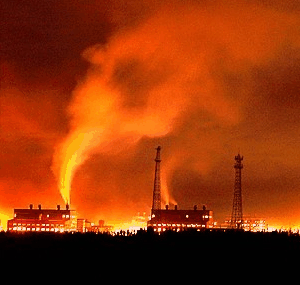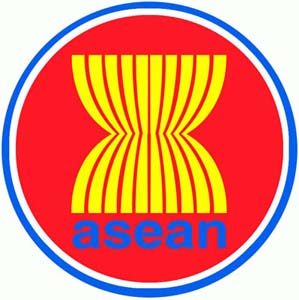July 29, 2010 Newsletter
Topics: China's Internet users, energy, U.S.-North Korea relations, business
Date Published: 07/29/2010

 It's official: China is the Internet king. In mid-July, the China Internet Network Information Center released that Internet users in China had reached 420 million, with 277 million (66%) of those people connected to the web through their mobile phones. In fact, during the first half of 2010 alone, 43.34 million customers logged onto the Internet for the first time through a handheld device. Social networking and online shopping were cited as major factors fueling this immense Internet growth. However, in an ironic twist, a handful of Chinese micro-blogging services such as Sina, Sohu, NetEast, and Tencent were briefly shutdown almost simultaneously with the milestone announcement, prompting users to suspect another instance of government regulation.
It's official: China is the Internet king. In mid-July, the China Internet Network Information Center released that Internet users in China had reached 420 million, with 277 million (66%) of those people connected to the web through their mobile phones. In fact, during the first half of 2010 alone, 43.34 million customers logged onto the Internet for the first time through a handheld device. Social networking and online shopping were cited as major factors fueling this immense Internet growth. However, in an ironic twist, a handful of Chinese micro-blogging services such as Sina, Sohu, NetEast, and Tencent were briefly shutdown almost simultaneously with the milestone announcement, prompting users to suspect another instance of government regulation.
 In other momentous news, according to the International Energy Agency (IEA), China has now surpassed the U.S. as the biggest consumer of energy. Using a measurement called oil equivalent – which consists of a number of energy sources such as oil, coal, nuclear power, natural gas, and renewable resources – the IEA reported that China has used 2.252 billion tons compared to the 2.170 billion tons consumed by the U.S. However, it should be noted that China’s energy consumption is directly tied to its massive industrialization in recent years. Conversely, energy usage in the U.S. is linked to a high expenditure per individual consumer.
In other momentous news, according to the International Energy Agency (IEA), China has now surpassed the U.S. as the biggest consumer of energy. Using a measurement called oil equivalent – which consists of a number of energy sources such as oil, coal, nuclear power, natural gas, and renewable resources – the IEA reported that China has used 2.252 billion tons compared to the 2.170 billion tons consumed by the U.S. However, it should be noted that China’s energy consumption is directly tied to its massive industrialization in recent years. Conversely, energy usage in the U.S. is linked to a high expenditure per individual consumer.
 On the security front, the Asean Regional Forum in Hanoi took place this past week. Secretary of State Hillary Clinton, Chinese Foreign Minister Yang Jiechi, and diplomats from 24 countries and the European Union convened. At the forum, the U.S. and North Korea traded multiple barbs on security issues. Carrying those debates further, Clinton spoke out in a separate visit to the zone that divides North and South Korea regarding sanctions on North Korea that will limit the purchase and sale of arms to freeze the assets of Pyongyang`s leadership. The purpose of the sanctions are to discourage North Korean leadership from selling weapons technology in exchange for hard currency to develop even more weapons of mass destruction. However, the sanctions provoked anger from North Korea’s sole ally in the region, China, who accused the U.S. of further aggravating regional tensions.
On the security front, the Asean Regional Forum in Hanoi took place this past week. Secretary of State Hillary Clinton, Chinese Foreign Minister Yang Jiechi, and diplomats from 24 countries and the European Union convened. At the forum, the U.S. and North Korea traded multiple barbs on security issues. Carrying those debates further, Clinton spoke out in a separate visit to the zone that divides North and South Korea regarding sanctions on North Korea that will limit the purchase and sale of arms to freeze the assets of Pyongyang`s leadership. The purpose of the sanctions are to discourage North Korean leadership from selling weapons technology in exchange for hard currency to develop even more weapons of mass destruction. However, the sanctions provoked anger from North Korea’s sole ally in the region, China, who accused the U.S. of further aggravating regional tensions.
Also stirring controversy was Jürgen Hambrecht, chairman of chemical giant BASF, and Peter Löscher, chief executive of industrial corporation Siemens, who both openly criticized China for its alleged biases against foreign firms. Hambrecht said he felt foreign companies were forced to exchange business and technological “know-how” to Chinese companies to gain better market access, while Löscher complained that Chinese procurement rules which support “indigenous innovation” in turn harm foreign companies. China premier Wen Jiabao disagreed with both critiques, saying that claims of China’s investment environment worsening are untrue. The fact that firms are now quite publicly speaking out marks a turn of the tide. With businesses growing ever the more emboldened to voice their opinions against Chinese policies, it will be intriguing to see how China will respond in the future. Read more about China’s economy, politics and other current events in the Daily Updates section of our website.